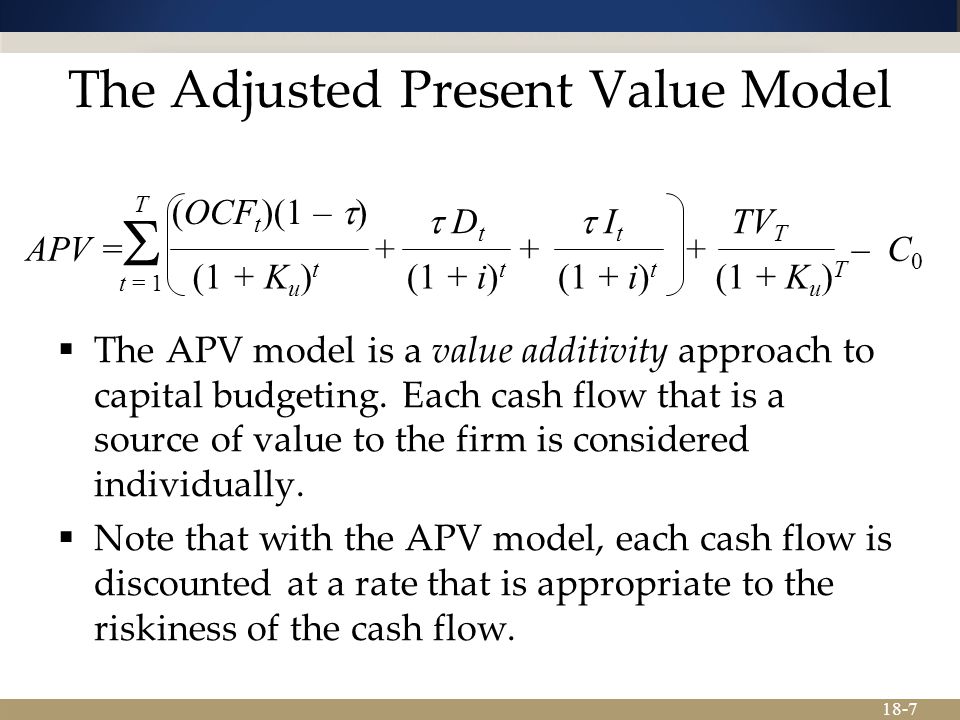
Notícias
What is overtime and how is it paid?

This might result in them advancing your career but also increasing your hours past the point you feel comfortable working. Most importantly, it won’t take away from the number of hours in which you sleep. For example, if most of your waking hours are for working, then you don’t have a lot of balance.
recovers $77K in wages, benefits for 10 workers working on a … – US Department of Labor
recovers $77K in wages, benefits for 10 workers working on a ….
Posted: Mon, 21 Aug 2023 18:15:55 GMT [source]
There are two options for calculating overtime pay for salaried employees. The state of California’s overtime laws differ from federal overtime laws in many respects, and they involve overlapping statutes, regulations, and precedents that govern the compensation of employees in California. Classes of workers who are exempt from the regulation include certain types of administrative, professional, and executive employees.
At what pay rate is overtime paid?
The IRS uses your gross income to determine which tax bracket you fall into. Your gross income is the total amount of income you make before taxes and other deductions are subtracted from it. Here’s what you need to know about overtime, taxes, and whether overtime has more taxes taken out of it or not. A company may harm themselves by docking a salaried employee for disciplinary reasons. Directives issued by the European Union must be incorporated into law by member states. Handy Reference Guide to the Fair Labor Standards Act
Answers many questions about the FLSA and gives information about certain occupations that are exempt from the Act.
Overtime refers to the length of time an employee works on top of their normal working week. Extra pay for working weekends or nights is a matter of agreement between the employer and the employee (or the employee’s representative). The FLSA does not require extra pay for weekend or night work or double time pay. The FLSA, with some exceptions, requires bonus payments to be included as part of an employee’s regular rate of pay in computing overtime. Additionally, what is considered a workweek may be defined by the employer as any consecutive seven days, with each day consisting of a 24 hour time period. While most businesses operate on a calendar week, if a business wants to run Wednesday to Tuesday for their pay period, they can.
Origin of overtime
It need not coincide with the calendar week, but may begin on any day and at any hour of the day. Different workweeks may be established for different employees or groups of employees. Normally, overtime pay earned in a particular workweek must be paid on the regular pay day for the pay period in which the wages were earned.
On August 23, 2004, President George W. Bush and the Department of Labor proposed changes to regulations governing implementation of the law. In particular, the new rules would have allowed more companies to offer flextime to their workers instead of overtime. The definition of exempt employees (ineligible for overtime) is regularly tested in the courts. A recent case is Encino Motorcars v. Navarro, which addresses the question of whether automobile dealer service advisors are eligible for overtime.

To qualify as an administrative, professional, or executive employee and therefore not be entitled to overtime, three tests must be passed based on salary basis, duties, and salary level. There are many other classes of workers who may be exempt including outside salespeople, certain agricultural employees, certain live-in employees, and certain transportation employees. Employees can neither waive their FLSA protections nor abridge them by contract.
Sales & Investments Calculators
Employees in California are entitled to double-time for working more than twelve hour workdays or more than eight hours on the seventh consecutive workday of a single workweek. The eight-hour overtime limit in California frequently gives rise to wage-and-hour litigation for violations of state (but not federal) labour laws. According to the FLSA, the formula for calculating overtime pay is the nonexempt employee’s regular rate of pay x 1.5 x overtime hours worked. This calculation may differ in states that have requirements, such as double time, which are more favorable to the employee.

Their requirements fit within the strategic planning framework for the organization. “Is Extra Pay Required For Weekend Or Night Work?”
Additional information about overtime pay from the elaws FLSA Advisor. Overtime does not receive a different tax rate than standard working hours. Working overtime isn’t worth it if you’re not seeing any progress towards your financial goals. One reason working overtime isn’t worth it is that you find that you’re not making any actual financial progress. You can also add up your overtime hours to determine how much money to want to risk in investment.
Exempt jobs – examples
To calculate hourly overtime rate, multiply normal rate of pay by the company’s overtime rate. To find total overtime wages, simply multiply the amount of overtime hours worked by the calculated rate of overtime. Include any applicable special rate supplement or locality payment in the “total remuneration” and “straight time rate of pay” when computing overtime pay under the FLSA. Compute the “hourly regular rate of pay” by dividing the “total remuneration” paid to an employee in the workweek by the number of hours in the workweek for which such compensation is paid. They must be paid for all hours worked, regardless of whose idea it was to have the employee work extra hours.
If you find your mental wellness slipping because you’ve taken on more hours at work, then it’s worth limiting those hours. An indicator that working overtime isn’t right for you is if your relationships start to fail or grow distant. These are all signs that working overtime isn’t going to help you reach your financial goals alone. Overtime can be worth it if you’re trying to impress an employer or advance further in your career. This can be a risky move, however, as it can tell your employer that you’re willing to work more hours. A final reason overtime may be worth it is that you’re trying to advance your career.
These articles and related content is the property of The Sage Group plc or its contractors or its licensors (“Sage”). Please do not copy, reproduce, modify, distribute or disburse without express consent from Sage. These articles and related content is provided as a general guidance for informational purposes only. Accordingly, Sage does not provide advice per the information included.
- According to the Fair Work Australia (1) an employer can request that an employee works reasonable overtime.
- Exempt employees are responsible for the accomplishment of a whole job.
- These articles and related content is provided as a general guidance for informational purposes only.
- To qualify as an administrative, professional, or executive employee and therefore not be entitled to overtime, three tests must be passed based on salary basis, duties, and salary level.
- Time off in lieu (TOIL),[1] compensatory time, or comp time is a type of work schedule arrangement that allows (or requires) workers to take time off instead of, or in addition to, receiving overtime pay.
- Please note that the information provided, while authoritative, is not guaranteed for accuracy and legality.
You can still rely on your standard income to pay your bills, mortgage, debt, and other expenses. When you have enough to pay for the share that you want to purchase, you can do so knowing that it didn’t come directly from your standard income. Not only will they earn a bit more money, but the amount of money per hour is also increased.
This is also why you need to exercise caution in any situation where you may have an hourly employee working remotely. They still need to record all hours worked and receive overtime pay for the hours worked in excess of the legal maximum. Our overtime calculator is the perfect tool to help you see how much money you will earn in exchange for those extra hours at work. Fill in the information about how much your hourly rate is and the calculator will do all the rest. It will show you the rate of overtime and the total pay you can expect. It can also give you an annual wage, taking your overtime into account.
According to the DOL, employers have no requirement to pay double-time pay to employees. All other employees are classified as nonexempt which means that they are subject to the Fair Labor Standards Act and are eligible for overtime pay. Additionally, Oregon requires overtime pay for people in manufacturing establishments who work over 10 hours a day. In addition to excluding particular workers from overtime rules, some overtime laws list specific industries where employers are exempt from overtime requirements. Keep reading to learn helpful information about overtime rules and overtime pay according to labor law regulations. What is more, you will discover what is time, and a half pay, who is an exempt employee is, and some examples of exempt jobs.
Overtime pay provided under title 5, United States Code, is pay for hours of work officially ordered or approved in excess of 8 hours in a day or 40 hours in an administrative workweek. Depending on the job type, the number of regular working hours might be determined by the best practices of a profession (based on the trade experience), agreements between sides, or legislation. Whatever it is, it has to fulfill national or local labor law regulations. In the United States, employers that require or allow their workers to work overtime are usually required to pay a premium rate of at least time and a half. Most workers have a fixed number of hours they work each week in their employment contract. Sometimes, they may have to or volunteer to work more than their contract requires.
BambooHR provides a one stop shop to manage data, hire talent, run payroll, and help employees thrive. Overtime rules are fairly straightforward if you stay in touch with your state DOL to ensure that you are properly compensating your employees. The basic overtime formula is (Hourly Rate) × (Overtime Multiplier) × (Number of Overtime Hours worked in a particular week). “When Is Overtime Due?”
Information about overtime from the elaws FLSA Advisor. According to the Fair Work Australia (1) an employer can request that an employee works reasonable overtime. The National Employment Standards (NES), and the Fair Work Act 2009 (Cth), both of which address what constitutes reasonable overtime, covers most employees.
That said, if you have a decent amount of free time or know that you can add in another hour or two at work without it impacting you, then overtime might be worth it. One of the most important factors to determine whether overtime is worth it for you is if you already have a lot of balance in your life. Overtime is worth it if you have a personal project like a business venture that needs extra funds. All the money that you earn from working overtime can go towards funding the project.
Join us on this webinar case-study to see how Vimeo was able to leverage the BambooHR and Boomr integration to simplify their workforce management and streamline their processes. “Is Extra Pay Required For Weekend Or Night Work?”
Additional information about overtime pay. All states What is overtime are subject to the federal minimums, but your state may be more restrictive. If you’re making decisions for your business, double-check with your employment attorney. California employers must comply with both, since there are two sources of applicable law (federal and state).
Time off in lieu (TOIL),[1] compensatory time, or comp time is a type of work schedule arrangement that allows (or requires) workers to take time off instead of, or in addition to, receiving overtime pay. A worker may receive overtime pay plus equal time off for each hour worked on certain agreed days, such as public holidays. Federal overtime laws are based on a 40-hour workweek, but some states calculate overtime by the workday. In states that calculate overtime per workday, employers must apply the applicable overtime rate to each hour beyond what’s considered a regular workday, e.g., eight hours. The overtime rate must be at least 1.5 times the amount of your hourly pay rate. Your employer must pay you at the overtime rate for the extra hours you worked.
